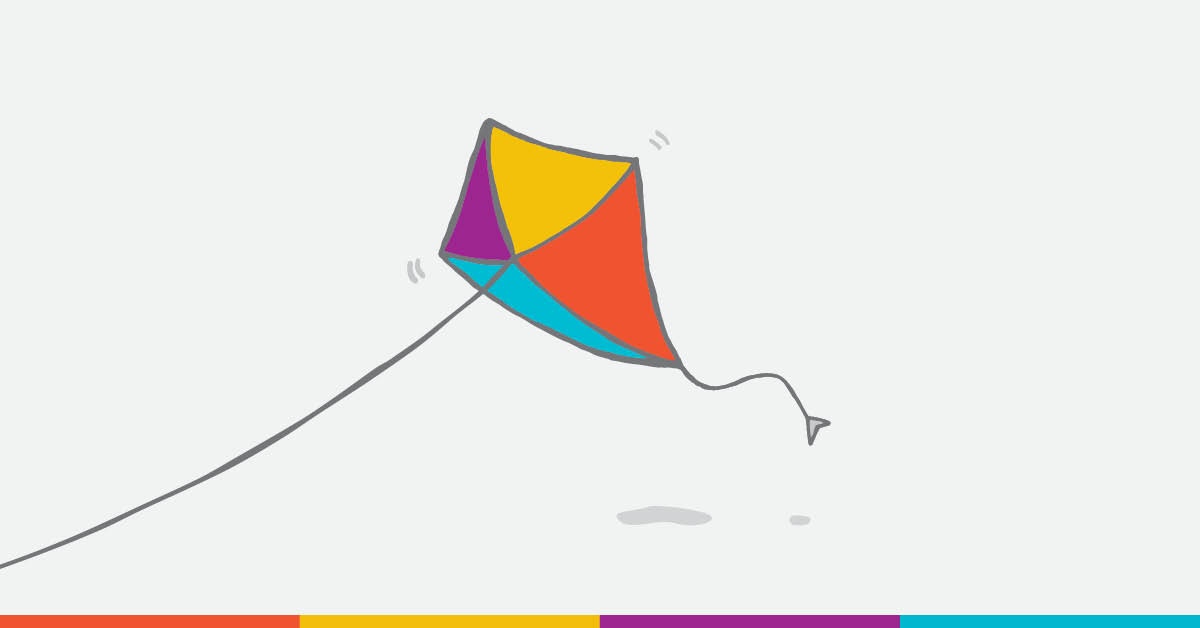Smart Company: Six Tips To Redefine Your Leadership Style
Leadership plays a critical role in nearly all aspects of social, political and business endeavours. No matter how large or small the organisation, poor leadership can result in repercussions that span years, and even decades.
The topic itself is diverse, and ‘good’ leadership can be difficult to define. One step in the right direction is to ensure the leadership methods of your organisation are ready for the challenges of the modern era.
For many in the top tiers of leadership, removing themselves from the ghosts of past ideologies is arduous, as the patterns and routines become deeply embedded in our minds. Neuroscience has shown repetition is built into our brains, and straying from these comfortable behaviours can almost be a fearful experience for some.
Routines And Predictions: Why The Brain Likes To Be Ready For Anything
Our brains try to stay one step ahead by predicting what is going to happen next and then preparing the body to react. Therefore, our perceptions are often based on past experiences. This can be problematic when we essentially get ‘stuck’ in a certain behaviour, and it can be tough to break free of that routine.
The brain can be conditioned to certain behaviours, and the basal ganglia are the part of the brain that oversees our routines. Fortunately, our brains exhibit plasticity, or the capacity to form new connections between brain cells. ‘Unlearning’ a conditioned response results in the growth of new connections in the prefrontal cortex, which will help inhibit the original learning.
Think of someone who is self-taught on an instrument. The person may be able to play quite well, but their technique may prevent the full expression of their talent. This also occurs in leadership, and overcoming these ‘bad’ habits takes time, effort and often a great deal of patience.
The Old Ways Of Leadership Tend To Linger
A hundred years of research has still not wholly defined leadership. This is because leadership in itself is constantly evolving and adapting. Leaders who are unable to also adapt are left floundering as they struggle to use the methods of the past that are no longer relevant or effective.
Most scholars agree leadership is a process of influencing others and this process is determined by the leader’s education, knowledge, personality and leadership style. Leaders are expected to guide and direct employees to achieve the goals of the organisation while balancing a hundred other factors at the same time.
Small Business And Technology Should Intermingle
Australia is like a patchwork quilt of small businesses, and together they form a strong, dynamic economic sector. Small businesses (less than 19 people) account for nine out of 10 Australian companies and employ over 40% of the workforce. Only 3% employ more than 20 people, so focusing on how technology can fuel development for smaller organisations is the key to a growing, thriving economy.
But, small business owners must take the initiative to ‘keep up’ with their larger counterparts. Innovation helps drive productivity, but smaller firms aren’t investing as much in advanced technology — only 28% compared to 36% for larger entities.
Technology is helping us to better understand how our brains and bodies function, but something else is looming: artificial intelligence (AI).
AI is growing at a prodigious rate, and it is revolutionising many industries, including manufacturing and healthcare. Since 2013, the share of jobs requiring AI use has jumped 450%. There has been a 1400% increase in AI startups since 2000, so like it or not, this technology is here to stay.
Imagine the possibilities when AI is available to companies of all sizes, from one person to thousands, to help them make better-informed decisions. The idea of a robot companion that is as emotional and cognitively as intelligent as a human is still reserved for science fiction, so think of AI in leadership as support and not as a replacement.
Small business owners may scoff at the idea of using AI at work, especially if they are uncertain of the cost. Like any other technology, AI will continue to come down in price and become more accessible to even the smallest of organisations. If you run your business, or if you have a small family enterprise, imagine the time you could free up if an AI completed your daily, mundane tasks. The future of work is working smarter, not harder, and AI technology could help us accomplish this.
Creating An Environment Ready For Innovation
Once we acknowledge leadership must be fluid and our brains are up for the challenge of learning something new, we can move forward in creating healthy, innovative and productive leaders.
Consider These Tips To Redefine Your Leadership Style
- Give it some time
Changes don’t occur overnight, and people may be resistant, especially if they consider the changes to be drastic. Be patient with yourself and those around you while still expecting positive results. - Start small
While sweeping, across-the-board changes are dramatic, they are also unrealistic. Make small changes, stop to reassess, and then adjust and press on. - Bring the right brains together
A diverse mix of individuals will support many types of talent, and varying experience levels also bring new voices and ideas. Leaders who are enthusiastic, compassionate and inspirational will attract people who will have a lasting effect on an organisation. - Become curious again
Curiosity is the gap between what we know and what we do not know, and curiosity triggers dopamine production in the brain. Dopamine is known as a reward neurotransmitter, and it helps our brains think outside the box to solve problems using novel methods or ideas. - Believe in wellness
Healthy people accomplish more, and we should lead by example. Create workout spaces in the office building and set aside time for these facilities to be used. Revamp the cafeteria and vending machines to promote good eating habits. Also, recognise that sleep deprivation can make it easier for people to get sick. No one should be working a 15-hour day and then come right back to work. - Embrace AI and explore what it can do for you
Artificial intelligence is already here, and its use will continue to become more widespread. Instead of fearing the unknown, explore what AI can do for you as a leader. AI will continue to develop at a rapid pace, and leaders in the ‘imagination age’ must have the courage and foresight to position themselves to fully utilise this technology.
Leaders in the modern era must
break free of old traditions and routines.
Neuroscience has shown our brains are very capable of change and the leadership styles needed today will inspire and shape the future for businesses of every size. When we embrace diversity and create the conditions required for learning, we create healthy, curious and innovative brains.
Originally published in Smart Company.
- i4 Neuroleader (353)
- Leadership & Culture (336)
- Brain Health & Wellbeing (206)
- Innovation (97)
- Performance (85)
- Our News (79)
- Collaboration (68)
- Agility (53)
- Practitioner Stories (44)
- In The Press (36)
- Make Me A Leader (33)
- Balance (31)
- Integration (30)
- Imagination (29)
- Awareness (23)
- Brain-Friendly Channel (22)
- Brain-Friendly Leadership (22)
- Communication (22)
- Curiosity (21)
- Inspiration (19)
- Intuition (19)
- Attitude (17)
- Courage (16)
- Adaptability (14)
- Case Studies (14)
- Drive (14)
- Generosity (13)
- Ethics (9)
- Mental Readiness (9)
- Influence (8)
- Retreat (8)
- Brain-Friendly Leadership (1)
- Oracle Cards (1)
- 1 November 2025 (2)
- 1 September 2025 (3)
- 1 August 2025 (5)
- 1 July 2025 (5)
- 1 June 2025 (2)
- 1 April 2025 (1)
- 1 March 2025 (8)
- 1 February 2025 (3)
- 1 September 2024 (4)
- 1 July 2024 (2)
- 1 June 2024 (6)
- 1 May 2024 (2)
- 1 April 2024 (3)
- 1 March 2024 (1)
- 1 November 2023 (1)
- 1 August 2023 (1)
- 1 July 2023 (2)
- 1 June 2023 (2)
- 1 May 2023 (4)
- 1 April 2023 (2)
- 1 March 2023 (7)
- 1 February 2023 (4)
- 1 January 2023 (1)
- 1 September 2022 (1)
- 1 May 2022 (3)
- 1 April 2022 (1)
- 1 March 2022 (5)
- 1 February 2022 (4)
- 1 January 2022 (4)
- 1 December 2021 (2)
- 1 November 2021 (4)
- 1 October 2021 (3)
- 1 September 2021 (6)
- 1 August 2021 (1)
- 1 April 2021 (1)
- 1 December 2020 (2)
- 1 November 2020 (1)
- 1 September 2020 (1)
- 1 August 2020 (1)
- 1 July 2020 (3)
- 1 June 2020 (4)
- 1 May 2020 (3)
- 1 April 2020 (4)
- 1 March 2020 (6)
- 1 February 2020 (4)
- 1 January 2020 (2)
- 1 December 2019 (3)
- 1 November 2019 (3)
- 1 October 2019 (5)
- 1 September 2019 (4)
- 1 August 2019 (4)
- 1 July 2019 (4)
- 1 June 2019 (5)
- 1 May 2019 (9)
- 1 April 2019 (9)
- 1 March 2019 (8)
- 1 February 2019 (7)
- 1 January 2019 (8)
- 1 December 2018 (5)
- 1 November 2018 (10)
- 1 October 2018 (16)
- 1 September 2018 (9)
- 1 August 2018 (10)
- 1 July 2018 (9)
- 1 June 2018 (8)
- 1 May 2018 (9)
- 1 April 2018 (9)
- 1 March 2018 (9)
- 1 February 2018 (8)
- 1 January 2018 (8)
- 1 December 2017 (6)
- 1 November 2017 (9)
- 1 October 2017 (9)
- 1 September 2017 (8)
- 1 August 2017 (10)
- 1 July 2017 (8)
- 1 June 2017 (8)
- 1 May 2017 (9)
- 1 April 2017 (8)
- 1 March 2017 (6)
- 1 January 2017 (3)
- 1 December 2016 (4)
- 1 November 2016 (5)
- 1 October 2016 (4)
- 1 September 2016 (2)
- 1 August 2016 (4)
- 1 July 2016 (4)
- 1 June 2016 (2)
- 1 May 2016 (3)
- 1 April 2016 (3)
- 1 March 2016 (7)
- 1 February 2016 (2)
- 1 January 2016 (5)
- 1 December 2015 (2)
- 1 November 2015 (2)
- 1 October 2015 (4)
- 1 September 2015 (2)
- 1 August 2015 (2)
- 1 July 2015 (1)
- 1 June 2015 (3)
- 1 May 2015 (4)
- 1 April 2015 (5)
- 1 March 2015 (3)
- 1 February 2015 (3)
- 1 January 2015 (3)
- 1 December 2014 (3)
- 1 November 2014 (3)
- 1 October 2014 (3)
- 1 September 2014 (5)
- 1 August 2014 (4)
- 1 July 2014 (5)
- 1 June 2014 (3)
- 1 May 2014 (1)
- 1 March 2014 (1)
- 1 December 2013 (2)
- 1 November 2013 (1)
- 1 July 2013 (1)
- 1 June 2013 (1)
- 1 May 2013 (3)
- 1 April 2013 (1)
- 1 March 2013 (2)
- 1 February 2013 (1)
- 1 January 2013 (2)
- 1 November 2012 (1)
- 1 October 2012 (1)
- 1 September 2012 (1)
- 1 August 2012 (2)
- 1 July 2012 (1)
- 1 June 2012 (1)
- 1 May 2012 (2)
- 1 April 2012 (1)
- 1 February 2012 (1)
- 1 January 2012 (1)
- 1 November 2011 (1)
- 1 October 2011 (3)
- 1 September 2011 (2)
- 1 July 2011 (1)
- 1 June 2011 (1)
- 1 May 2011 (1)
- 1 April 2011 (1)
- 1 March 2011 (1)
- 1 February 2011 (2)
- 1 January 2011 (4)
- 1 December 2010 (4)
- 1 November 2010 (3)
- 1 October 2010 (5)
- 1 September 2010 (4)
- 1 August 2010 (4)
- 1 July 2010 (3)
- 1 June 2010 (4)
- 1 May 2010 (7)
- 1 April 2010 (5)
Subscribe by email
You May Also Like
These Related Stories

Silence Can Really Be Golden After All

Navigating Staff Mental Health In A Pandemic



No Comments Yet
Let us know what you think